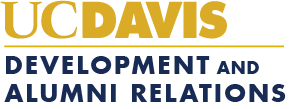Applying the Guiding Principles
1. Be respectful and specific when referencing identity and lived experiences
Whenever possible, take your cues about how to describe identity and affinity directly from the audience you are writing or speaking to, or the people you are writing or speaking about.
Mention an individual’s specific identity group—like their race, age, gender, disability or religion—only when it’s of key relevance to the story you’re
sharing about that person. If you do conclude that identity information is relevant, seek out language preferences by closely listening to (or reading) how an individual describes themselves or, if appropriate, by respectfully asking how they prefer to identify themselves.
Use specific language when possible—without presuming individual affinities. For example, if you’re writing about the contributions of Black alumni specifically, say so, rather than choosing a broader term like “alumni of color.” (And before using the term “BIPOC,” please read Constance Grady’s essay on the term.)
When it’s not possible or appropriate to determine an individual’s preferences, seek direction and recommendations about preferred language from relevant sources, including the resources listed on page four of this document. When you are unsure of a person’s pronouns, for example, or when writing generally, you can consult the UC Davis Editorial Style Guide, which recommends using the
gender-neutral pronouns “they, them, their and themselves” for both singular and plural subjects.
Continuously educating yourself about the history behind language conventions is critical to consciously using inclusive language. For example, exercise discretion when using words like “pioneer” or “frontier,” which can carry connotations of settler colonialism and forced displacement.
2. Describe individuals the way they describe themselves
Person-centered, or person-first, language leads with abilities over perceived limitations, avoids victimhood or objectification, and focuses on an individual over any condition they may live with. For example, person-centered language might speak of “a person who uses a wheelchair”—emphasizing the agency of someone using a mobility-enhancing tool—rather than a “wheelchair-bound individual,” which diminishes the agency of the person using the chair and is considered outdated.
However, some prefer identity-first language that acknowledges a condition they live with as an important part of who they are. For example, a person with autism who prefers identity-first language might identify as an “autistic person” or “autistic individual,” rather than as a “person with autism.”
As always, keep in mind that preferences vary by person, and language conventions are evolving in real time.
3. Choose words that recognize diverse experiences
Choose asset-based language that positions an individual as the one acting on their own behalf instead of deficit-based language—which focuses on the individual experiencing inequities rather than the systems that create those inequities.
Asset-based language is particularly important when describing the ways in which UC Davis supports students, especially students from historically underserved groups. In this context, deficit-based language perpetuates the harmful misconception that students who have not had equitable access to educational opportunities don’t have the same inherent potential, passion and
drive as advantaged students. When soliciting a donor for scholarship support, for example, saying that financial support “uplifts,” “motivates” or “enables” students can have the effect of positioning them as passive in their educational journeys or in need of charity. Instead, focus on the role that support can play in creating more equitable paths to educational opportunity for all students.
UC Davis is committed to an asset-oriented view that sees and values the firsthand knowledge, talents and contributions that each student brings to our community. Asset-based language is also important when describing patients, colleagues, and other community members and constituents.
Above all, asset-based language should recognize the agency of the person or people described.
4. Regularly consult a wide variety of perspectives
Seeking out a variety of resources on a regular basis is how each of us does our best to reflect a diversity of perspectives and current conversations in the words we choose. Here’s a sampling of references to help do this:
• UC Davis Office of Diversity, Equity and Inclusion Glossary
• UC Davis Student Affairs Editorial Style Guide
• UC Davis LGBTQIA Resource Center Glossary
• Linguistic Society of America’s Inclusive Language Guidelines
• National Center on Disability and Journalism’s Disability Language Style Guide
• San Francisco State University’s Diversity Style Guide
• Northwestern University’s Inclusive Language Guide
• University of Kansas Research & Training Center on Independent Living’s guidelines on how to write about people with disabilities
• Constance Grady’s discussion of the history and use of BIPOC
• National Center for Institutional Diversity’s resource on disrupting deficit-based thinking
• Gregory Younging’s Elements of Indigenous Style: A Guide for Writing By and About Indigenous Peoples
Visit us on the intranet for more DEI resources: devarintranet.ucdavis.edu/diversity-equity-and-inclusion-committee

